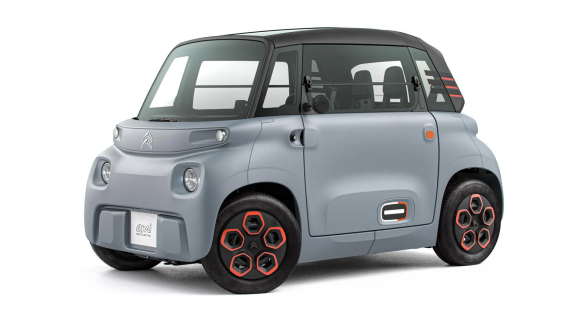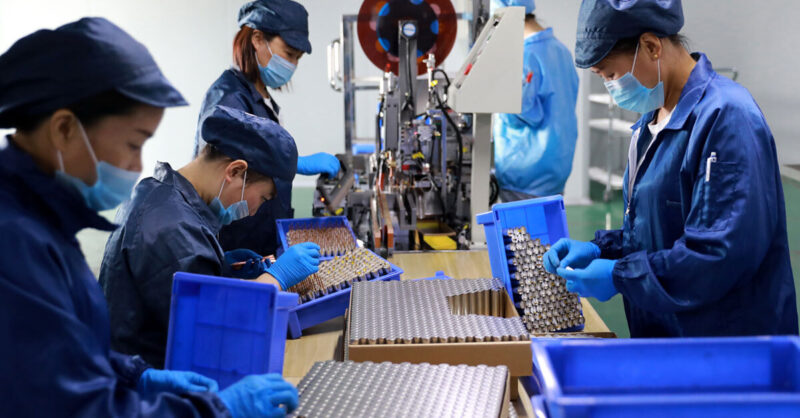electric vehicles Lithium battery suppliers
electric vehicles Lithium battery
Electric vehicles (EVs) typically use lithium-ion batteries as their primary source of energy storage. Lithium-ion batteries are a type of rechargeable battery that have become the preferred choice for EVs due to their high energy density, long lifespan, and relatively lightweight nature compared to other battery technologies.
Here are some key points about lithium batteries in electric vehicles:
Composition: Lithium-ion batteries used in EVs consist of multiple cells, each containing a positive electrode (cathode), negative electrode (anode), and an electrolyte solution. The cathode typically contains lithium compounds, such as lithium cobalt oxide (LiCoO2), lithium iron phosphate (LiFePO4), or lithium nickel manganese cobalt oxide (LiNiMnCoO2). The anode is usually made of graphite.
Energy Density: Lithium-ion batteries have a high energy density, meaning they can store a significant amount of energy in a relatively small and lightweight package. This allows electric vehicles to have longer driving ranges and higher performance capabilities.
Charging and Discharging: Lithium-ion batteries can be charged and discharged efficiently, making them suitable for electric vehicles. They can store energy from the electric grid during charging and deliver it to power the vehicle’s electric motor during discharging.
Range and Performance: The energy density of lithium-ion batteries enables EVs to achieve longer driving ranges compared to other battery technologies. The performance of EVs, such as acceleration and top speed, is also influenced by the power output and efficiency of the battery.
Lifespan: The lifespan of lithium-ion batteries is typically measured in charge cycles, which refers to the number of times a battery can be charged and discharged before its capacity starts to degrade significantly. The lifespan can vary depending on factors such as battery chemistry, usage patterns, temperature conditions, and maintenance. Manufacturers aim to develop batteries with longer lifespans to meet the demands of EV owners.
Safety Considerations: While lithium-ion batteries are generally safe, there have been rare instances of thermal runaway or battery fires. Battery management systems in EVs monitor and control factors like temperature, voltage, and current to ensure safe operation and prevent overcharging or overheating.
Recycling and Sustainability: The recycling of lithium-ion batteries is important to recover valuable materials and reduce environmental impact. Battery manufacturers and researchers are continuously working on improving recycling processes to maximize resource recovery. Additionally, efforts are being made to develop sustainable and environmentally friendly methods for battery production.

Why Choose Lithium Battery For electric vehicles?
High Energy Density
Lithium-ion batteries have a high energy density, which means they can store a large amount of energy in a relatively small and lightweight package. This allows EVs to have longer driving ranges and higher performance capabilities.
Lightweight
Lithium-ion batteries are lightweight compared to other battery technologies, such as lead-acid batteries. This reduces the overall weight of the vehicle, improving its energy efficiency and handling.
Fast Charging
Lithium-ion batteries can be charged at a faster rate compared to other battery technologies. This means EVs can be recharged more quickly, providing greater convenience to drivers.
Efficiency
Lithium-ion batteries have a high charge and discharge efficiency, meaning they can convert a large percentage of stored energy into actual power for the electric motor. This translates to better overall energy efficiency and longer driving ranges.
Longer Lifespan
Lithium-ion batteries generally have a longer lifespan compared to other types of batteries used in EVs. They can withstand a higher number of charge cycles before their capacity starts to degrade significantly. This results in reduced maintenance and replacement costs for EV owners.
Environmental Impact
Compared to internal combustion engine vehicles, EVs powered by lithium-ion batteries produce zero tailpipe emissions, contributing to improved air quality and reduced greenhouse gas emissions. Furthermore, lithium-ion batteries can be recycled, allowing for the recovery of valuable materials and reducing environmental impact.
Technological Advancements
Lithium-ion battery technology has been extensively researched and developed over the years, leading to continuous improvements in performance, safety, and cost. Ongoing advancements and investments in lithium-ion batteries for EVs contribute to the overall growth and development of the electric vehicle industry.
While there are other types of batteries available for electric vehicles, such as nickel-metal hydride (NiMH) batteries, lithium-ion batteries currently offer the best combination of energy density, weight, charging speed, efficiency, and overall performance. As a result, they have become the dominant choice for powering electric vehicles and are expected to continue playing a significant role in the future of sustainable transportation.

-
 In the rapidly advancing world of technology, energy storage solutions have become a crucial aspect of our lives. From powering electric vehicles to providing backup power during emergencies, reliable and efficient batteries are in high demand. One such solution that has gained immense popularity is the 100Ah LiFePO4 lithium battery. This article will explore the benefits and applications of this...Read more
In the rapidly advancing world of technology, energy storage solutions have become a crucial aspect of our lives. From powering electric vehicles to providing backup power during emergencies, reliable and efficient batteries are in high demand. One such solution that has gained immense popularity is the 100Ah LiFePO4 lithium battery. This article will explore the benefits and applications of this...Read more -
 A high-quality 48V LiFePO4 battery charger is an efficient power supply device that can help ensure the longevity and reliability of your battery system. LiFePO4 batteries are known for their high energy density, long cycle life, and stable voltage, making them an excellent choice for a wide range of applications, from electric vehicles and solar energy storage systems to backup...Read more
A high-quality 48V LiFePO4 battery charger is an efficient power supply device that can help ensure the longevity and reliability of your battery system. LiFePO4 batteries are known for their high energy density, long cycle life, and stable voltage, making them an excellent choice for a wide range of applications, from electric vehicles and solar energy storage systems to backup...Read more -
 Having a reliable starter battery in your car is essential for ensuring that your vehicle starts up smoothly and efficiently, every time. A starter battery provides the necessary power to start your car engine and keep it running, making it an important component of your vehicle overall performance. In this article, we take a closer look at what a...Read more
Having a reliable starter battery in your car is essential for ensuring that your vehicle starts up smoothly and efficiently, every time. A starter battery provides the necessary power to start your car engine and keep it running, making it an important component of your vehicle overall performance. In this article, we take a closer look at what a...Read more -
 Are you tired of your devices running out of power every time you need them the most? If the answer is yes, then it's time to consider upgrading to a 100Ah LiFePO4 lithium battery. This battery is a game-changer for anyone who needs reliable and long-lasting power for their devices. LiFePO4 lithium batteries are relatively new to the market,...Read more
Are you tired of your devices running out of power every time you need them the most? If the answer is yes, then it's time to consider upgrading to a 100Ah LiFePO4 lithium battery. This battery is a game-changer for anyone who needs reliable and long-lasting power for their devices. LiFePO4 lithium batteries are relatively new to the market,...Read more -
 Lithium iron phosphate batteries, also known as LiFePO4 batteries, are a type of rechargeable battery that has gained popularity in recent years due to their high energy density, long cycle life, and safety compared to other types of lithium-ion batteries. However, as with any new technology, the cost of lithium iron phosphate batteries has been a limiting factor for widespread...Read more
Lithium iron phosphate batteries, also known as LiFePO4 batteries, are a type of rechargeable battery that has gained popularity in recent years due to their high energy density, long cycle life, and safety compared to other types of lithium-ion batteries. However, as with any new technology, the cost of lithium iron phosphate batteries has been a limiting factor for widespread...Read more -
 In the automotive field, the battery is one of the core components and its performance and quality are directly related to the starting, operation and overall performance of the vehicle. Today, let's take a closer look at the 12.8V 60Ah car battery and see what features and advantages it has. 1. Voltage and Capacity First, the voltage of the 12.8V...Read more
In the automotive field, the battery is one of the core components and its performance and quality are directly related to the starting, operation and overall performance of the vehicle. Today, let's take a closer look at the 12.8V 60Ah car battery and see what features and advantages it has. 1. Voltage and Capacity First, the voltage of the 12.8V...Read more -
 Introduction: In recent years, the world has witnessed a growing demand for electric vehicles as a means to reduce carbon emissions and combat climate change. Responding to this need, an innovative electric dirt bike powered by advanced lithium battery technology has emerged as a game-changer in the transportation industry. This article aims to explore the features and benefits of this...Read more
Introduction: In recent years, the world has witnessed a growing demand for electric vehicles as a means to reduce carbon emissions and combat climate change. Responding to this need, an innovative electric dirt bike powered by advanced lithium battery technology has emerged as a game-changer in the transportation industry. This article aims to explore the features and benefits of this...Read more

